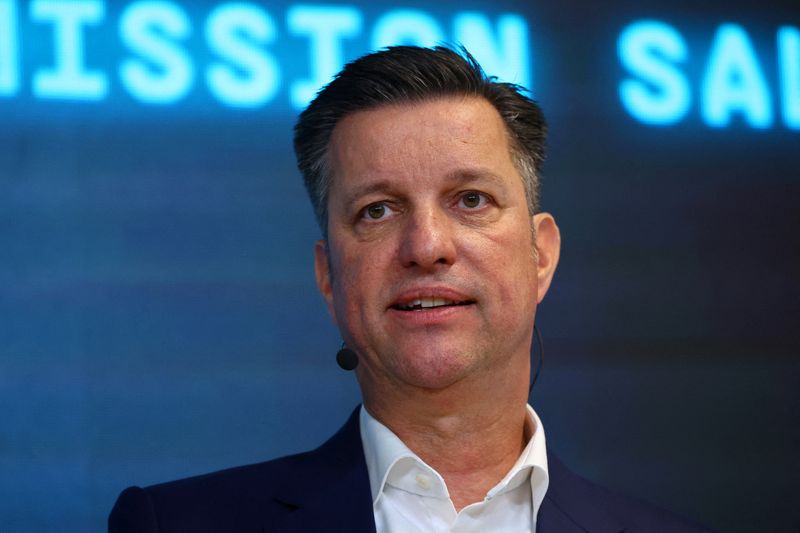By Victoria Waldersee and Christina Amann
WOLFSBURG, Germany (Reuters) - Volkswagen (ETR:VOWG_p) will not consider a stock market listing for its battery unit until its factories are up and running and its unified battery cell is in use, the division's boss told Reuters, essentially ruling out a possible IPO before 2026.
Thomas Schmall's comments provide the best indication so far for when Europe's top carmaker may float its PowerCo battery business on the stock exchange, as a follow-up to bringing in an outside investor or entering strategic partnerships with other cell manufacturers.
"In a second step, an IPO remains an option for the future. However, this will only become an issue once the factories are up and running and the standardised cell is in use," he told Reuters.
Volkswagen split off its battery unit in mid-2022, investing 20 billion euros ($21.7 billion) with partners to build plants reaching 240 gigawatt hours of capacity by 2030 in a move it hoped would give it greater control of its supply chain and help it catch up with Tesla (NASDAQ:TSLA).
The unit, aiming for 20 billion euros in sales by the end of the decade, has so far announced three battery cell factories in Salzgitter, Valencia and Ontario to open in 2025, 2026 and 2027, respectively.
It plans to use its unified cell, a single cell design available in three different chemistries, across at least 80% of its electric cars from 2025 - making 2026 the earliest time when Schmall's conditions for a listing would be met.
PowerCo has so far shied away from being specific about the timing of a potential IPO, only saying it planned to have the business investor-ready from 2024.
Schmall, for the first time, also ruled out another plant in Europe for now.
"At the moment this is not on the table from both a competitive and cost perspective," he said.
Capital-market enthusiasm for EVs has cooled as sales growth slowed and financial losses have piled up, with smaller companies from Polestar (NASDAQ:PSNY) to Fisker (NYSE:FSR) struggling to amass the finances for EV development.
The IPO market last year saw its lowest level of activity since 2016 as high borrowing rates held investors back.
"Public market investors want to see cash flow," said Chris Burns, CEO of anode material supplier Novonix.
Battery cell makers needed early offtake agreements and strong partnerships with carmakers to gain trust from the beginning, he added.

"The sentiment is very poor... it's just not a good time," said Andy Leyland, founder of battery supply chain consultancy SC Insights.
($1 = 0.9211 euros)